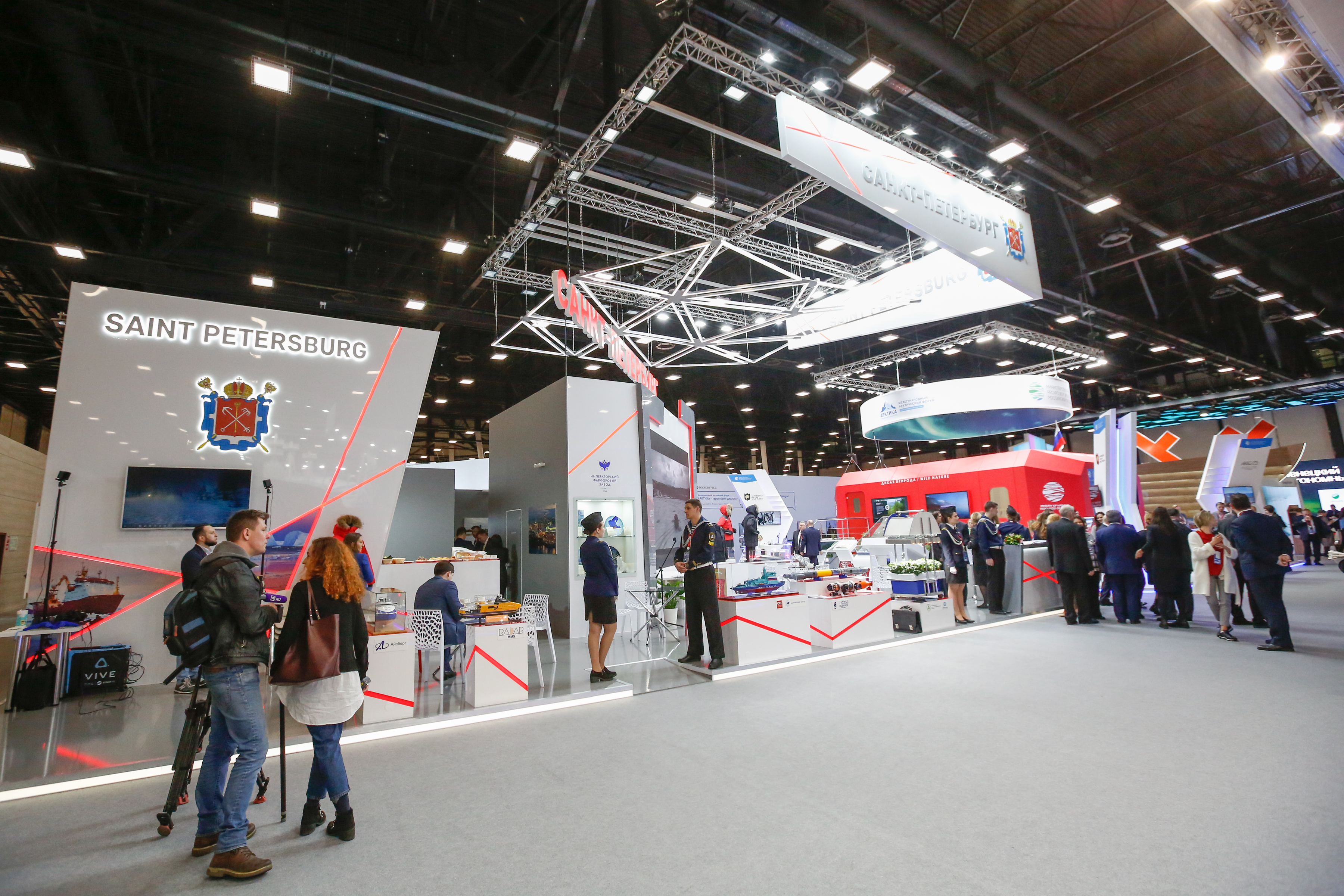 The business programme of the ‘Arctic: Territory of Dialogue’ International Arctic Forum has been published on the event’s official website with the themes and annotations of the main sessions. The Forum will take place on 11–13 April in St. Petersburg. As of now, the business programme includes about 30 panel sessions and roundtables.
The business programme of the ‘Arctic: Territory of Dialogue’ International Arctic Forum has been published on the event’s official website with the themes and annotations of the main sessions. The Forum will take place on 11–13 April in St. Petersburg. As of now, the business programme includes about 30 panel sessions and roundtables.
“Russia has chaired the Arctic Council since 2021. The ‘Arctic: Territory of Dialogue’ International Arctic Forum is an important event of our chairmanship. During the Forum, we will discuss issues that are of paramount importance for the sustainable development of the Arctic: increasing transportation along the Northern Sea Route, the accelerated economic development of territories, and creating conditions for people to live and work comfortably, including the indigenous peoples of the North. An important focus of ‚Äã‚Äãour work will be the climate agenda – the disappearance of permafrost, the promotion of eco-friendly technologies, and decarbonization. I am certain that the Forum will serve as a platform for a constructive dialogue, will help to develop new effective solutions, and strengthen international cooperation in the Arctic region,” said Yury Trutnev, Deputy Prime Minister of the Russian Federation and Presidential Plenipotentiary Envoy to the Far Eastern Federal District, and Chairman of the Forum’s Organizing Committee.
“The Forum traditionally aims to discuss topical issues concerning the Arctic territories and develop mechanisms for stable and sustainable development in the northern latitudes. The programme will reflect the priorities of Russia’s chairmanship in the Arctic Council, including socioeconomic development, human capital development, and environmental protection. In addition, this year the business programme for the first time will include a separate block dedicated to the prospects for cooperation between Russia and Asian countries in the Arctic region,” said Anton Kobyakov, Adviser to the Russian President and Executive Secretary of the Forum’s Organizing Committee.
The programme is comprised of five thematic pillars: ‘Economic Development’, ‘Improving Living Conditions in the Arctic’, ‘Logistics Development in the Arctic’, ‘Environmental and Climate-Related Issues in the Arctic’, and ‘Science and Education in the Arctic’.
The ‘Economic Development’ pillar will address ways to raise funding for sustainable development projects in the Russian Arctic, the best practices of SMEs in the region, as well as issues related to strategic subsoil use, green energy, and digitalization in the Arctic. A separate session will recap the results of the work that has been done over the last two years by the Arctic Zone of the Russian Federation (AZRF), the largest special economic zone in the world. Experts will assess the effectiveness of existing tax and administrative preferences and prospects for improving them in order to take advantage of the main competitive advantages of the Arctic.
The ‘Improving Living Conditions in the Arctic’ pillar is dedicated to such issues as the development of Arctic cities taking into account international experience and best practices as well as priorities in tourism, sports, and medicine. The programme also includes sessions on ways to preserve the traditions of the indigenous peoples of the North. In particular, the speakers will discuss a unique educational project called ‘Children of the Arctic’ on the languages‚Äã‚Äãof the indigenous peoples of the Arctic.
The ‘Logistics Development in the Arctic’ pillar will focus on prospects for the development of the Northern Sea Route (NSR) as a global transport corridor between Europe and the Asia-Pacific countries as well as ensuring sustainable and safe shipping. One of the sessions will be devoted to the development of the NSR’s infrastructure, including port facilities, the icebreaking, cargo, and rescue fleet, and satellite communications system. It will also include discussions on shipbuilding and ship repair and the development of polar aviation.
The ‘Environmental and Climate-Related Issues in the Arctic’ pillar includes sessions on environmental, social, and corporate governance (ESG) in the Far North, the safety of infrastructure in the permafrost zone, the preservation of biodiversity in the region, new approaches to responsible waste management, raising submerged radioactive and hazardous objects in the seas of the Arctic Ocean as well as climate change trends in the Arctic.
The discussion topics in the ‘Science and Education in the Arctic’ pillar include scientific research in the high-latitude Arctic, how to attract and retain human resources in the Far North, prospects for cooperation between science and industry as well as breakthrough high-tech projects in the Arctic.
“The Forum’s business programme will allow for a thorough and comprehensive discussion of issues concerning sustainable development in the Arctic region, how to ensure the socioeconomic wellbeing of its inhabitants, including indigenous peoples, and the preservation of the Arctic’s unique ecosystems. The discussions at this platform in St. Petersburg will have a special focus on the theme of preserving the identity, traditional way of life, and cultural heritage of the region’s indigenous peoples taking into account the goals and objectives of the UN Decade of Indigenous Languages ‚Äã‚Äãthat began this year,” Chairman of the Senior Arctic Officials and Ambassador-at-Large for Arctic Cooperation Nikolay Korchunov said.



